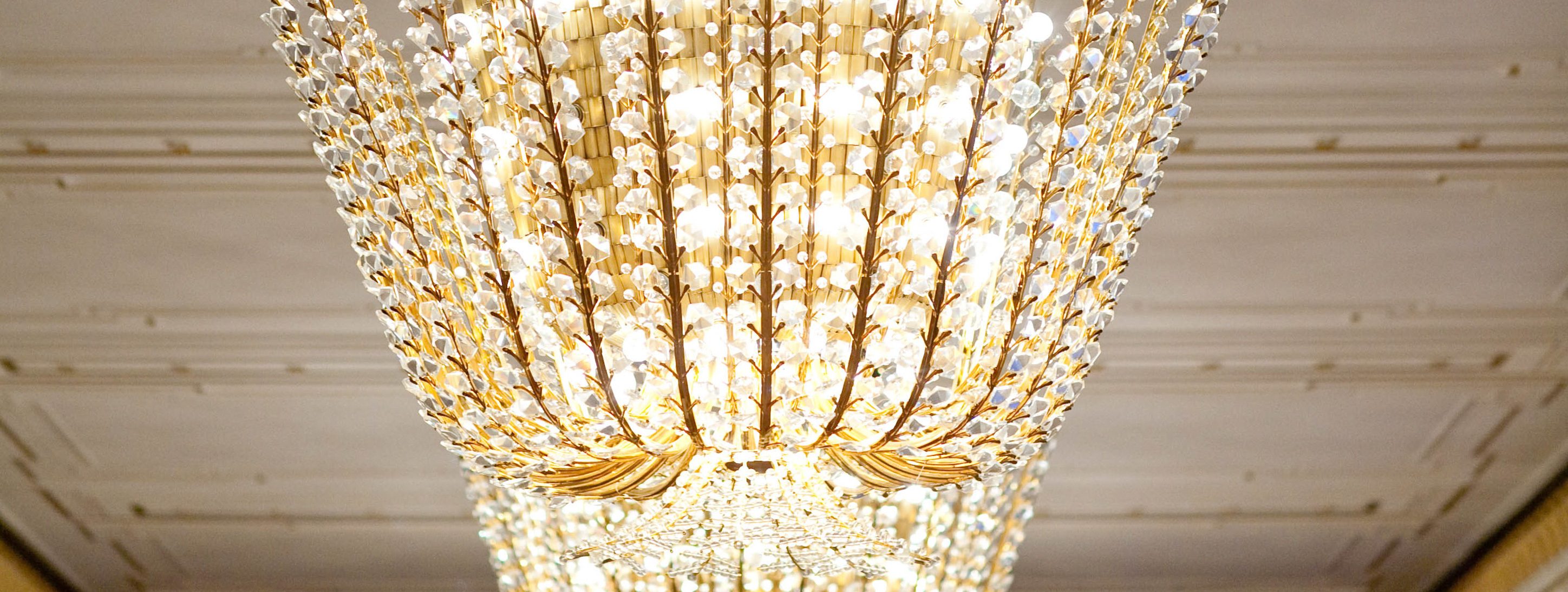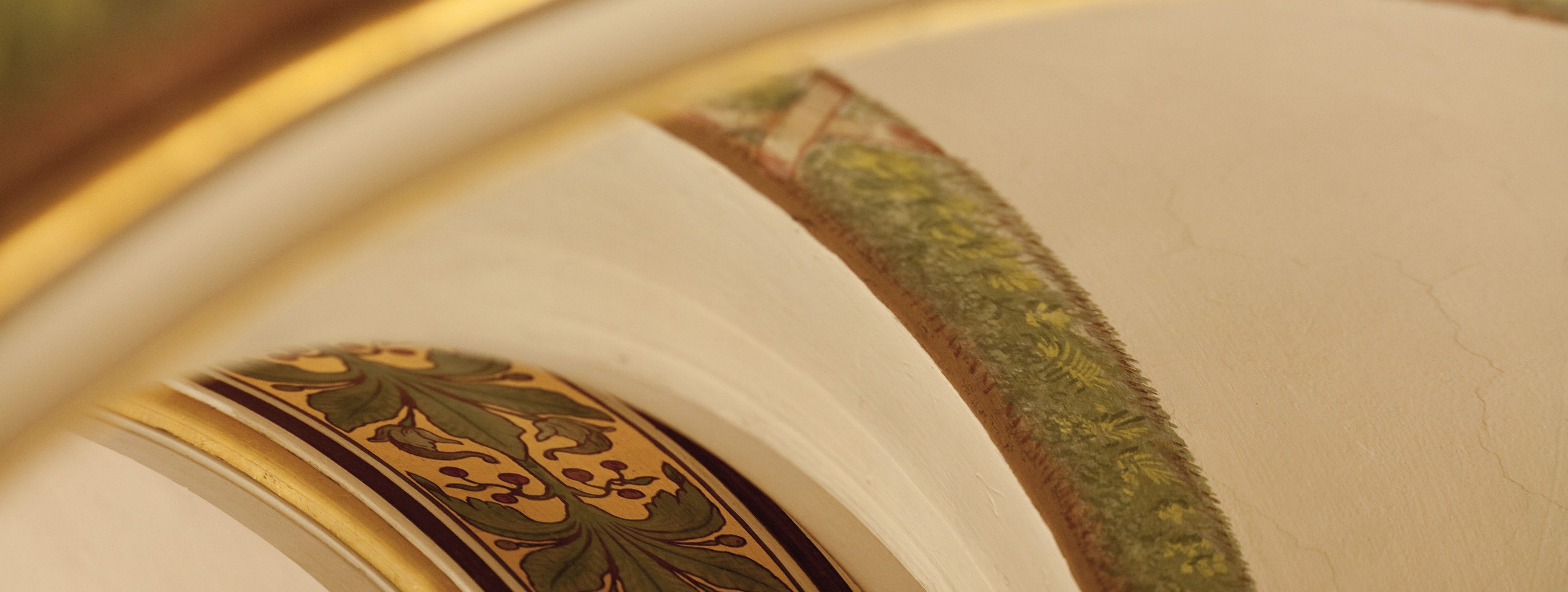Short Summary
For the naval lieutenant Benjamin Franklin Pinkerton, his marriage to Cio-Cio-San, known as Butterfly, is a non-committal convenience during his stay in Nagasaki.
Cio-Cio-San, on the other hand, takes the marriage very seriously. She converts to the Christian faith and accepts the break with her family. Pinkerton returns to the USA.
When he returns three years later, he is accompanied by his new wife. They come to take the child that Cio-Cio-San gave birth to after Pinkerton's departure. She prepares the child for departure and takes her own life.
Madama
Butterfly
Storyline
On a hill overlooking Nagasaki, the American naval lieutenant Benjamin Franklin Pinkerton visits a house and servants that the matchmaker Goro has organized for him.
This is where he will spend his honeymoon with his future wife Cio-Cio-San, known as "Butterfly". The contract for the house and wife runs for 999 years, but can be terminated by the American on a monthly basis. The first wedding guest is the American consul Sharpless. Pinkerton raves to him about his no-strings-attached marriage; Sharpless, on the other hand, has been made aware of Cio-Cio-San's voice during her visit to the consulate the day before: He warns his compatriot not to make this woman unhappy. Pinkerton toasts with him to the day when he will enter into "a real marriage" with an American woman.
Butterfly arrives at the house with her friends. In conversation with Sharpless and Pinkerton, she tells them that her once wealthy family became impoverished after the death of her father, forcing her to work as a geisha. In the meantime, Butterfly's relatives have arrived and are making secret judgments about the bridegroom. Butterfly shows Pinkerton the personal belongings she has brought with her, including an object she is reluctant to talk about: the dagger with which her father committed suicide on the Emperor's orders. She tells Pinkerton that she has secretly adopted his religion so that she can share his life completely.
The imperial commissioner presents the marriage contract in the presence of a registrar, the bride and groom sign it and the marriage is concluded; the official guests leave the party. Pinkerton, who finds Butterfly's "hired" relatives a nuisance, wants to get the family celebration over with quickly when Butterfly's uncle, a Buddhist priest, storms in. He curses Butterfly for her change of religion, whereupon her whole family disowns her. Pinkerton throws the guests out and is left alone with his weeping wife. Full of anticipation for the wedding night, he comforts his "plaything". Pinkerton's words convince Butterfly that he will compensate her for the loss of her family. They spend their first night together.
Pinkerton's departure from Japan was three years ago. His and Cio-Cio-San's child, a blond, blue-eyed boy, was born after his departure.
Cio-Cio-San, the child and the servant Suzuki still live in the house on the hill, as Pinkerton has the consul pay the monthly rent, but the money for their living expenses is almost exhausted. Suzuki doubts that Pinkerton will return, but Cio-Cio-San paints the day of his arrival in bright colors for her and herself.
Consul Sharpless visits Butterfly. He wants to read her a letter from Pinkerton concerning her. They are interrupted by Goro, who since Pinkerton's departure has regularly tried to find Cio-Cio-San a new husband, which she consistently refuses. Lord Yamadori, the most persistent of the new marriage candidates, pays his respects to her again. Cio-Cio-San, trusting in binding American marriage law, continues to insist on being addressed as "Madama B. F. Pinkerton" and dismisses him demonstratively. Sharpless' reading of the letter repeatedly interrupts Cio-Cio-San with expressions of her delight, so that the main part of the letter remains unread. Given her blindness to the obvious, Sharpless impatiently asks her what she will do if Pinkerton never returns. She has two options, says Cio-Cio-San: to resume her service as a geisha or to die.
When Sharpless tries to persuade her not to refuse Yamadori's hand, Cio-Cio-San triumphantly presents him with the child, which she sees as a guarantee of Pinkerton's return. Sharpless promises to inform Pinkerton of the child's existence. He has barely left when a cannon shot announces the arrival of an American warship in the harbor: Pinkerton's ship! Cio-Cio-San is euphorically triumphant and instructs Suzuki to pick all the flowers in the garden and decorate the house with them. She adorns herself with her wedding dress, then waits for Pinkerton with Suzuki and the child. Night falls.
In the morning, Pinkerton still hasn't arrived.
Only when Cio-Cio-San retires with the child to rest does Sharpless sneak into the house with him and ask Suzuki for help: she is to convince Cio-Cio-San to hand the child over to Pinkerton and his American wife Kate, who has traveled with him and is waiting in the garden.
Pinkerton is overwhelmed by his feelings of guilt and avoids a confrontation, while Kate assures herself of Suzuki's support. Suzuki and Sharpless make it clear to Cio-Cio-San in a few words that Pinkerton has not returned for her sake, but to pick up the child.
Cio-Cio-San declares that she will only hand over her son to Pinkerton personally. Left alone, she prepares to kill herself with her father's dagger. She blindfolds the child sent to her by Suzuki before stabbing herself. Pinkerton finds her dying.
The poetic production by the Hollywood director Anthony Minghella, who died in 2008, worked with Japanese stylistic elements and was co-produced by the Metropolitan Opera New York, the English National Opera and the Lithuanian National Theater for Opera and Ballet. Carolyn Choa took over the elaborate new production for the premiere at the Vienna State Opera on September 7, 2020. Choa, who was married to Anthony Minghella, has created choreographies for numerous opera productions and also staged them herself; she received an Olivier Award together with the director for the choreography in Minghella's production of Madama Butterfly.
To musically portray Japan in conflict with its opening and westernization forced by the American navy in 1853, Puccini alienated his musical language by enriching it with material from original or mediated Far Eastern sources: In addition to borrowing from transcriptions of Japanese music by Bruckner's pupil Rudolf Dittrich, he used melodies from a music box made in Switzerland for export to China, employed percussion augmented by Japanese instruments and also drew inspiration from a Kabuki theater performance. The exoticism in Puccini's Butterfly score is more than just folkloristic decoration. It stages a critique of colonialism that makes the work fruitful for post-colonial questions and readings.
When taking a critical look at exoticist tendencies in Madama Butterfly, one should not forget that Lieutenant Pinkerton also belonged to a foreign culture for Puccini and his initially Italian audience. Just as the Japanese official is introduced with the Japanese anthem, "The Star-Spangled Banner", today the American national anthem and already the official anthem of the US Navy at the time the opera was written, is played at the mention of the United States, naturally orchestrated in the manner of a brass band. Puccini was particularly interested in depicting the two foreign worlds of Japan and America, which is one of the reasons why an act set in the American embassy was planned. During the work, Puccini wrote to Ricordi that he was trying "to make Mr. F. B. [sic] Pinkerton sing as American as possible" (Ann-Christine Mecke).


